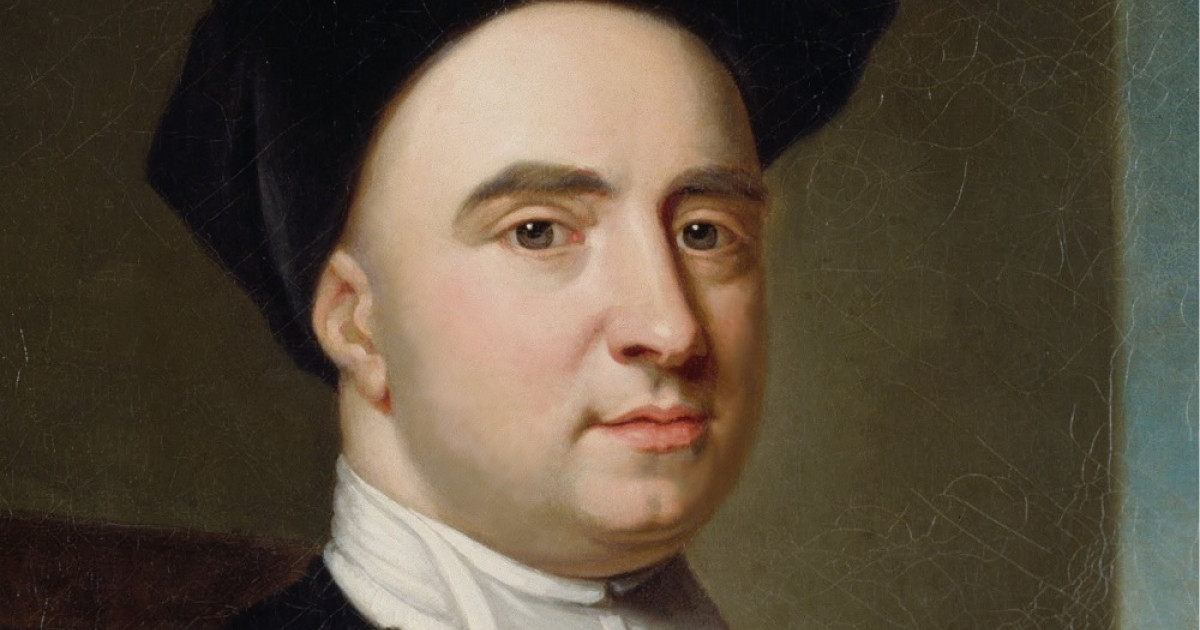
George Berkeley, an influential philosopher and bishop in the 18th century, is well-known for his contributions to the field of metaphysics. While some may be familiar with his philosophical concept of immaterialism or idealism, there are several lesser-known aspects of Berkeley’s life and work that may surprise you. From his significant influence on the development of empiricism to his unconventional views on perception and reality, Berkeley’s ideas continue to captivate scholars and thinkers to this day. In this article, we will explore 14 surprising facts about George Berkeley that shed light on his unique perspective and lasting impact on philosophy. Prepare to delve into the fascinating life and ideas of this philosophical luminary.
Key Takeaways:
- George Berkeley, an Irish philosopher, believed that everything exists in the mind and rejected the idea of material substance. His ideas continue to influence philosophy today.
- Berkeley’s philosophy of subjective idealism and the concept of “to be is to be perceived” challenged traditional views and had a lasting impact on the fields of perception and knowledge.
George Berkeley was an influential Irish philosopher.
George Berkeley, born in 1685, was a renowned Irish philosopher who made significant contributions to the fields of metaphysics and epistemology. His philosophical ideas continue to be studied and debated to this day.
Berkeley’s most famous work is “A Treatise Concerning the Principles of Human Knowledge.”
In this groundbreaking work, Berkeley argued against the existence of material substance and posited that everything in the world is composed of ideas and exists solely in the mind of the perceiver.
He proposed the theory of subjective idealism.
Subjective idealism, also known as immaterialism, is the philosophical belief that the physical world does not exist independently of the mind. Berkeley believed that objects only exist when they are perceived by a conscious mind.
Berkeley’s philosophy had a significant impact on the development of idealism.
His ideas heavily influenced later philosophers, such as Immanuel Kant and Arthur Schopenhauer, who further expanded on the concept of idealism and its implications.
Berkeley was a Bishop in the Anglican Church.
Despite his philosophical pursuits, Berkeley was also a devout Anglican and served as the Bishop of Cloyne in Ireland.
He argued against the existence of matter.
In his philosophical writings, Berkeley rejected the notion of material substance and instead proposed that physical objects are only collections of ideas perceived by the mind.
Berkeley believed in the existence of God.
While he denied the existence of matter, Berkeley strongly believed in the existence of God as the ultimate perceiver and maintainer of all ideas.
He developed the concept of “esse est percipi,” which means “to be is to be perceived.”
This concept reflects Berkeley’s view that the existence of objects depends on being perceived by a conscious mind. Without perception, objects cease to exist.
Berkeley was a critic of John Locke’s philosophy.
While sharing some philosophical similarities, Berkeley strongly disagreed with Locke’s notion that primary qualities of objects exist independently of perception.
He made significant contributions to the theory of vision.
Berkeley’s theories on vision challenged the prevailing views of his time and proposed that perception is an active process involving both the mind and the senses.
Berkeley was an advocate for educational reform.
He believed in the power of education to shape individuals and society, and advocated for improved methods of teaching and learning.
Berkeley’s philosophy influenced the development of empiricism.
His focus on perception and the role of the senses in acquiring knowledge had a profound impact on the empiricist tradition in philosophy.
He had an impact on the philosophy of mathematics.
Berkeley’s philosophical ideas extended to the realm of mathematics, where he questioned the nature of mathematical concepts and their relationship to the physical world.
Berkeley’s philosophy continues to be studied and debated today.
His ideas on perception, idealism, and the nature of reality have left a lasting impact on the field of philosophy, and scholars continue to analyze and discuss his theories.
Conclusion
George Berkeley was a philosopher who made significant contributions to the field of metaphysics and epistemology. While he is primarily known for his concept of subjective idealism, there are many surprising facts about his life and work that are worth exploring. From his influential views on perception to his time as a bishop, Berkeley’s legacy continues to provoke thought and stimulate philosophical inquiry. Whether you agree or disagree with his ideas, it is undeniable that Berkeley has left an indelible mark on the philosophical landscape.
FAQs
1. Who was George Berkeley?
George Berkeley was an Irish philosopher who was born in 1685 and lived until 1753. He is best known for his philosophy of subjective idealism and his belief that all reality consists of ideas.
2. What is subjective idealism?
Subjective idealism, also known as immaterialism, is the philosophical position that only minds and their ideas exist. According to Berkeley, objects have no existence independent of their perception by minds.
3. What were Berkeley’s views on perception?
Berkeley argued that our perception of the world is entirely dependent on our senses. He believed that material objects are nothing more than aggregates of ideas and that they cease to exist when not perceived.
4. How did Berkeley challenge the concept of matter?
Berkeley rejected the notion of material substance and argued that physical objects are simply collections of ideas in the mind. He believed that all qualities and properties that we ascribe to matter are actually perceived by the mind.
5. What was Berkeley’s stance on God?
Berkeley believed in the existence of God and saw him as an active participant in the maintenance of the world. He argued that God’s perception of all things ensures their continued existence even when they are not perceived by human minds.
6. Was Berkeley a bishop?
Yes, Berkeley was ordained as a priest in the Church of Ireland and later became the Bishop of Cloyne in 1734. Despite his religious duties, he continued to engage in philosophical discourse and writing.
7. Did Berkeley have any notable works?
Yes, Berkeley’s most influential work is “A Treatise Concerning the Principles of Human Knowledge,” published in 1710. He also wrote “Three Dialogues between Hylas and Philonous,” which further explores his philosophy of idealism.
8. What is Berkeley’s influence on philosophy?
Berkeley’s philosophy has had a lasting impact, particularly in the fields of idealism and the philosophy of mind. His views on perception and the nature of reality continue to be debated and explored by philosophers to this day.
9. Was Berkeley widely accepted during his time?
While Berkeley’s ideas were initially met with mixed reactions, he gained recognition and influence over time. Today, his work is studied and respected in philosophical circles, although not all philosophers agree with his views.
10. How did Berkeley’s philosophy differ from other philosophers?
Unlike many of his contemporaries who embraced materialism and the belief in external objects, Berkeley challenged the existence of material substance and argued for the primacy of the mind in perceiving reality.
George Berkeley's revolutionary ideas continue to inspire philosophical discourse, much like his contemporary David Hume, whose contributions to empiricism are equally significant. Berkeley's concept of subjective idealism, which challenged the existence of matter, bears similarities to the principles of ideal gas, a fascinating topic that delves into the behavior of gases under specific conditions. Exploring these subjects further can provide valuable insights into the nature of reality and the physical world around us.
Was this page helpful?
Our commitment to delivering trustworthy and engaging content is at the heart of what we do. Each fact on our site is contributed by real users like you, bringing a wealth of diverse insights and information. To ensure the highest standards of accuracy and reliability, our dedicated editors meticulously review each submission. This process guarantees that the facts we share are not only fascinating but also credible. Trust in our commitment to quality and authenticity as you explore and learn with us.


